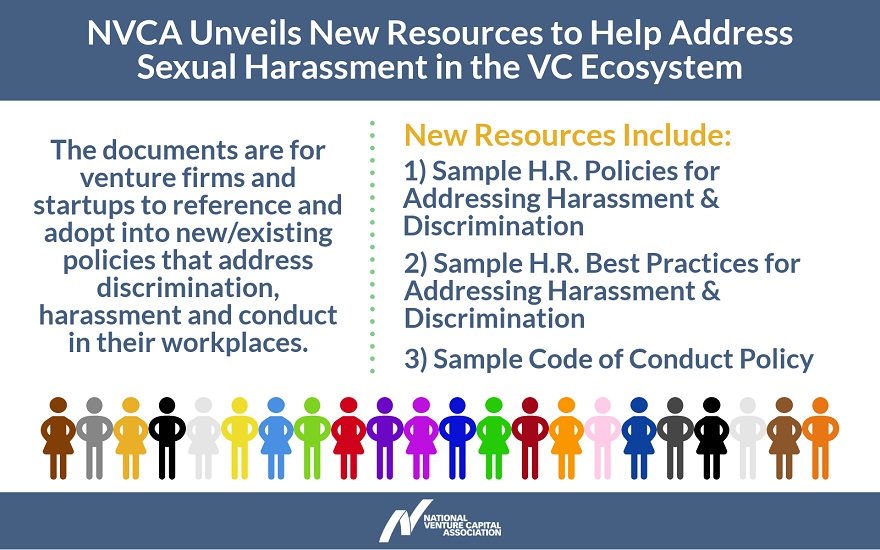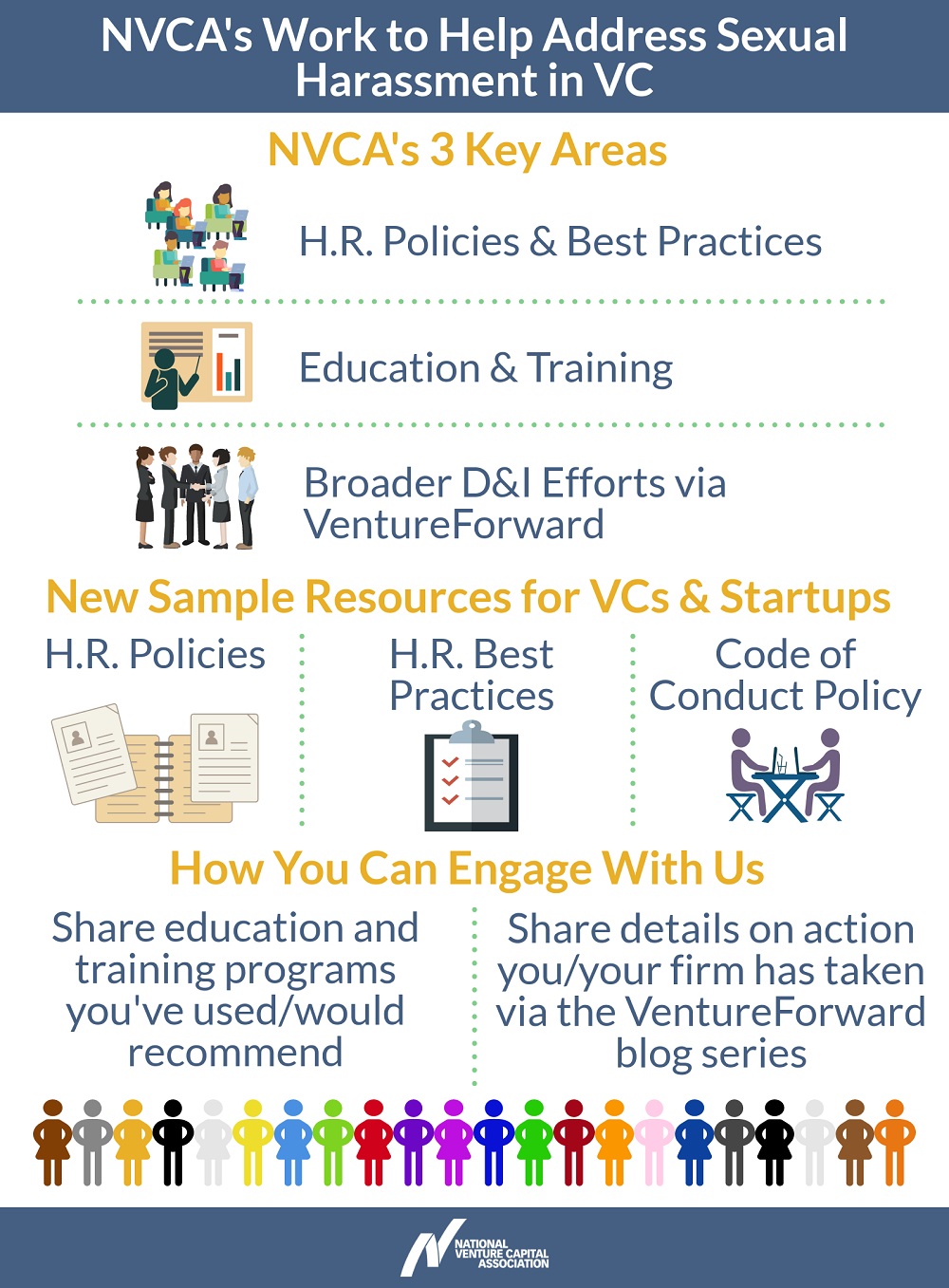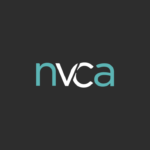New Resources for Addressing Sexual Harassment in the VC Industry
Since last summer, the venture industry has come together to address sexual harassment in our ecosystem. The serious and sensitive nature of this topic led NVCA on a path of listening and learning; facilitating discussions and convening working groups; and developing much-needed resources for our industry. Our thorough and determined process led to yesterday’s release of three key NVCA resources for addressing sexual harassment: Sample H.R. Policies for Addressing Harassment & Discrimination; Sample H.R. Best Practices for Addressing Harassment and Discrimination; and Sample Code of Conduct policy. Our goal is for venture firms to review these documents and operationalize them into existing/new policies within their firm and share them with their portfolio companies.
 The release of these documents comes as part of the productive and insightful journey NVCA began when news of sexual harassment first came to light last June. After numerous conversations with a variety of individuals in the ecosystem and after NVCA facilitated a workshop in San Francisco in August—with more than 60 industry participants including venture investors, H.R. professionals, employment and legal experts, entrepreneurs, limited partners, and other stakeholders—a few themes emerged as priorities for NVCA.
The release of these documents comes as part of the productive and insightful journey NVCA began when news of sexual harassment first came to light last June. After numerous conversations with a variety of individuals in the ecosystem and after NVCA facilitated a workshop in San Francisco in August—with more than 60 industry participants including venture investors, H.R. professionals, employment and legal experts, entrepreneurs, limited partners, and other stakeholders—a few themes emerged as priorities for NVCA.
Using the feedback from the workshop and other discussions we had across the ecosystem, NVCA’s Board of Directors unanimously voted in September to focus on three key areas to address the issue of sexual harassment. In an earlier blog post, I laid out these areas: 1) develop industry standard H.R. policies and best practices for venture firms and startups to adopt; 2) facilitate education and training for VC firms and startups; and 3) institutionalize NVCA’s broader diversity and inclusion (D&I) efforts via a new initiative called Venture Forward.
 NVCA then got to work with two smaller working groups of VC investors and legal, H.R., and employment experts to tackle the development of a model anti-harassment policy, anti-harassment best practices, and a code of conduct for VC firms and startups to adopt. Part of this holistic project involved revisiting and updating the NVCA Sample H.R. Policies for Attracting and Retaining Diverse Talent, which were initially released in March 2017. And with the release of NVCA’s updated model legal documents earlier this month, we added a provision requiring portfolio companies to adopt and maintain a code of conduct and policies prohibiting discrimination and harassment.
NVCA then got to work with two smaller working groups of VC investors and legal, H.R., and employment experts to tackle the development of a model anti-harassment policy, anti-harassment best practices, and a code of conduct for VC firms and startups to adopt. Part of this holistic project involved revisiting and updating the NVCA Sample H.R. Policies for Attracting and Retaining Diverse Talent, which were initially released in March 2017. And with the release of NVCA’s updated model legal documents earlier this month, we added a provision requiring portfolio companies to adopt and maintain a code of conduct and policies prohibiting discrimination and harassment.
Just as NVCA’s model legal documents have served as a go-to resource for the industry for years, we hope that these new H.R. model documents will be used with equal fervor. A big thanks to the members of our working groups who dedicated countless hours to developing these resources. And a big thanks to other VC leaders—whether behind the scenes or in a more outspoken manner—who have prioritized addressing the issue of harassment and promoting better policies and cultures at their firms and with entrepreneurs and startups. We also applaud the numerous organizations across the ecosystem that are working to tackle these serious and complex issues.
The release of the H.R. model documents is an important step in the right direction for our industry, but NVCA’s—and the industry’s—journey clearly has a long way to go. Together, we have much more work to do. Over the coming months, NVCA will review training programs on harassment and D&I to help facilitate education for VC firms and startups, as well as focus on further developing the initiatives outlined for VentureForward, including sharing insights and best practices of industry leaders through our blog series, conducting research, and connecting VCs with a broader pool of talent. We encourage all to continue to engage with us to help move our industry forward.

